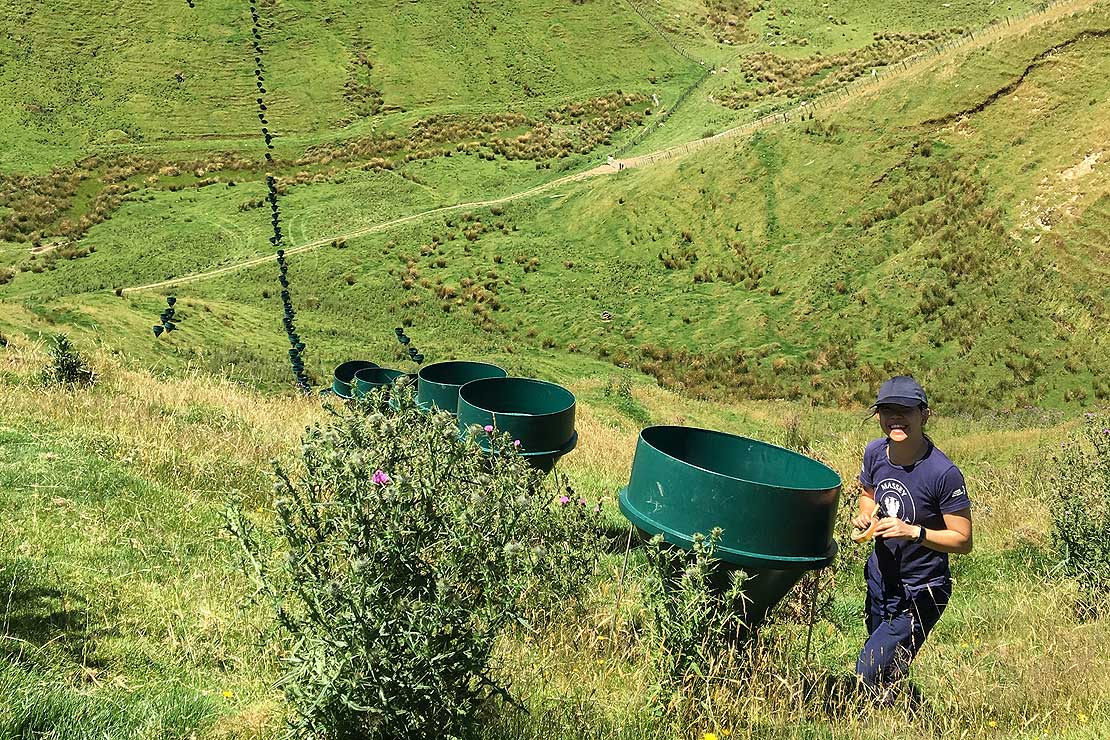When Dr Sue Chok left high school she had her sights set on becoming a doctor, but back then she had a medical specialisation in mind and the self-confessed “townie” wouldn not even have known what precision agriculture was.
Last week she accepted her doctoral degree in precision agriculture as part of graduation celebrations in Palmerston North, joining over 1000 other graduates.
“I thought I wanted to be a medical doctor, but it turns out I didn’t like biology that much. My interests were actually in other areas like physics and chemistry,” Dr Chok says.
“I was also passionate about the environment.”
After assessing her options, Dr Chok decided to complete a Bachelor of Engineering majoring in environmental technology, and then a doctorate with one of the country’s leading agritech minds, Professor Ian Yule.
“I didn’t have a farming background. It was a completely new topic and I was looking for a new challenge. There was a summer internship with Ian and Miles Grafton that a friend suggested I apply for. It was in assessing fertiliser quality in New Zealand”
An internship working on this project, led to Dr Chok’s PhD working with Ravensdown. The PhD project looked at improving aerial topdressing (applying granular fertiliser from aircraft) on hill country farms in New Zealand.
“Fertiliser is applied on New Zealand hill country using fixed wing agricultural aircraft. This has been occurring in New Zealand since the 1940s. There has been very little change in the aerial topdressing industry till recently.
“This technology will allow different application rates to be applied over a farm rather than the conventional blanket rate. Studies have shown that pasture and nutrient needs can vary significantly over a farm. Therefore the variable rate system will help to optimise pasture production and reduce cost by applying fertiliser where it is required.
“My particular part was to validate a model that enables the prediction of fertiliser distribution in the field and to assess the performance of a new variable rate application technology system that Ravensdown is implementing in their fixed wing aircraft fleet.”
Her research involved field work, lab work and programming.
“I really enjoyed the diversity I had as I wasn’t just doing one thing the whole time.
“The field work involved setting out a total of around 200 collectors over five experiments where aircraft would be applying fertiliser. The samples would then be collected and weighed in a lab, where the results were used to make conclusions about the system and see if the model can reproduce it.
“It’s a cool feeling as my work had real world applications where the solutions from my project is implemented by the aerial spreaders so that farmers can benefit immediately.”
Dr Chok will take up a role in the University’s new AgriTech Partnership as a junior research officer working with the innovative Fenix hyper spectral imaging system, a tool used in precision agriculture, which was first developed for military reconnaissance and space exploration.
The project is part of the Primary Growth Partnership between Ravensdown and the Ministry for Primary Industries.
Source: Massey University












